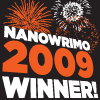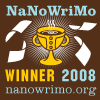 Five travellers ride through the countryside and put up at a village inn. An uncle, a nephew, and their servants - or so they seem; it quickly becomes obvious that not one of them is what they appear. In the morning they leave, and nothing more is heard of them until one turns up dead. Whether the cause is suicide or murder isn’t clear; but it is clear that someone rich and powerful is determined to find the man who called himself Mr Bartholomew. A lawyer, Henry Ayscough, is sent to take depositions from all the witnesses he can find, and thus proceeds to piece together the truth of what occurred. Or rather he intended to arrive at the truth, but instead finds something far beyond anything he could have imagined.
Five travellers ride through the countryside and put up at a village inn. An uncle, a nephew, and their servants - or so they seem; it quickly becomes obvious that not one of them is what they appear. In the morning they leave, and nothing more is heard of them until one turns up dead. Whether the cause is suicide or murder isn’t clear; but it is clear that someone rich and powerful is determined to find the man who called himself Mr Bartholomew. A lawyer, Henry Ayscough, is sent to take depositions from all the witnesses he can find, and thus proceeds to piece together the truth of what occurred. Or rather he intended to arrive at the truth, but instead finds something far beyond anything he could have imagined.
I really enjoyed the first part of this book, while the five travellers were still together and the mystery was being set up. Each new piece of information about them only added to the puzzle, and answers generated more questions. After the death the style of writing made a curious shift - the straight Q-and-A of Ayscough’s depositions were recorded verbatim. I mean that literally - there was no narrative, just question-answer-question-answer for pages on end. Unusual, yes, but not hard to read once I got used to it, and while a good amount of light was shed on the five and their purpose the mystery only deepened.
And then the plot careered off course and plunged into bizarro world. I haven’t been so utterly baffled by a plot since I watched Mulholland Drive, and there at least illumination arrived the same evening. I still can’t make sense of this. As much as I hate to give spoilers, I can’t see any way to properly review the flaws without doing so - an unfortunate consequence of the biggest cracks appearing closest to the end. If you don’t want to know how it ends, stop reading now.
Once Jones, alias Farthing, told Ayscough of what he had observed up in the hills, I immediately began to suspect that the woman Bartholomew and his servants met was from the future. But it didn’t stop there. Turns out there were three time travellers who were actually just one time traveller, and they/she came in a spaceship that hovered in a cave without visible means of support or access. They/she weren’t/wasn’t from any old future but a Utopian one, which may have been in this world or the next one; either way, it was strongly implied that Bartholomew went there and may have originated there (in which case you’d wonder that his parents never noticed anything odd). And this entire farrago was aimed solely at the conception of the future founder of the Shaker sect of Christianity.
What the --?
I really can’t imagine that Ann Lee and the other real persons whose names were employed in this piece of pure and outlandish invention would appreciate it. Even worse, the whole thing was just too fantastic to accept. I think I have a strong ability to suspend disbelief, but here disbelief crashed to the ground and gave itself concussion. The obviously genuine account of events was impossible to credit, and there was no plausible alternative explanation, as much as Ayscough tried to find one (and I got very tired of Ayscough’s bullying interjections when questioning people). Not to mention the unanswered questions about the death, and the fact that Utopia looked really boring. The only way I got through the last hundred pages was by thinking of how much fun I’d have roasting it later.
If you’re wondering about the title: ‘Maggot’ was the word used for the spaceship by a baffled resident of the eighteenth century, at which time the word also meant a whim or fancy, which according to the introduction this whole thing is. However, the name inevitably conjures images of a little white grub - something to avoid.
Rating: D+


1 comment:
I think you missed the point entirely.
The entire book is a satire that examines various themes including:
- The novel as a literary format
- The origin and evolution of criminal investigation and forensics
- The use of supporting documents (publications, letters, etc...) to make fiction seem less... um, fictional (which fowles uses here ironically to do just the opposite)
- The fallibility and subjectivity of historical accounts
- The tendency of modern historians to view the past through a modern lens and to thereby impose an inaccurate interpretation of events
- The struggle for modern 'selfhood' and it's co-opting by capitalism
...In fact, had you read the prologue and the postscript, you might have discovered that Fowles explains these observations quite plainly. This is not a piece of historical fiction to be read for entertainment purposes. It is an intentionally difficult book designed to make the reader question his or her basic assumptions about both day-to-day life and the lens through-which we view the past.
Post a Comment